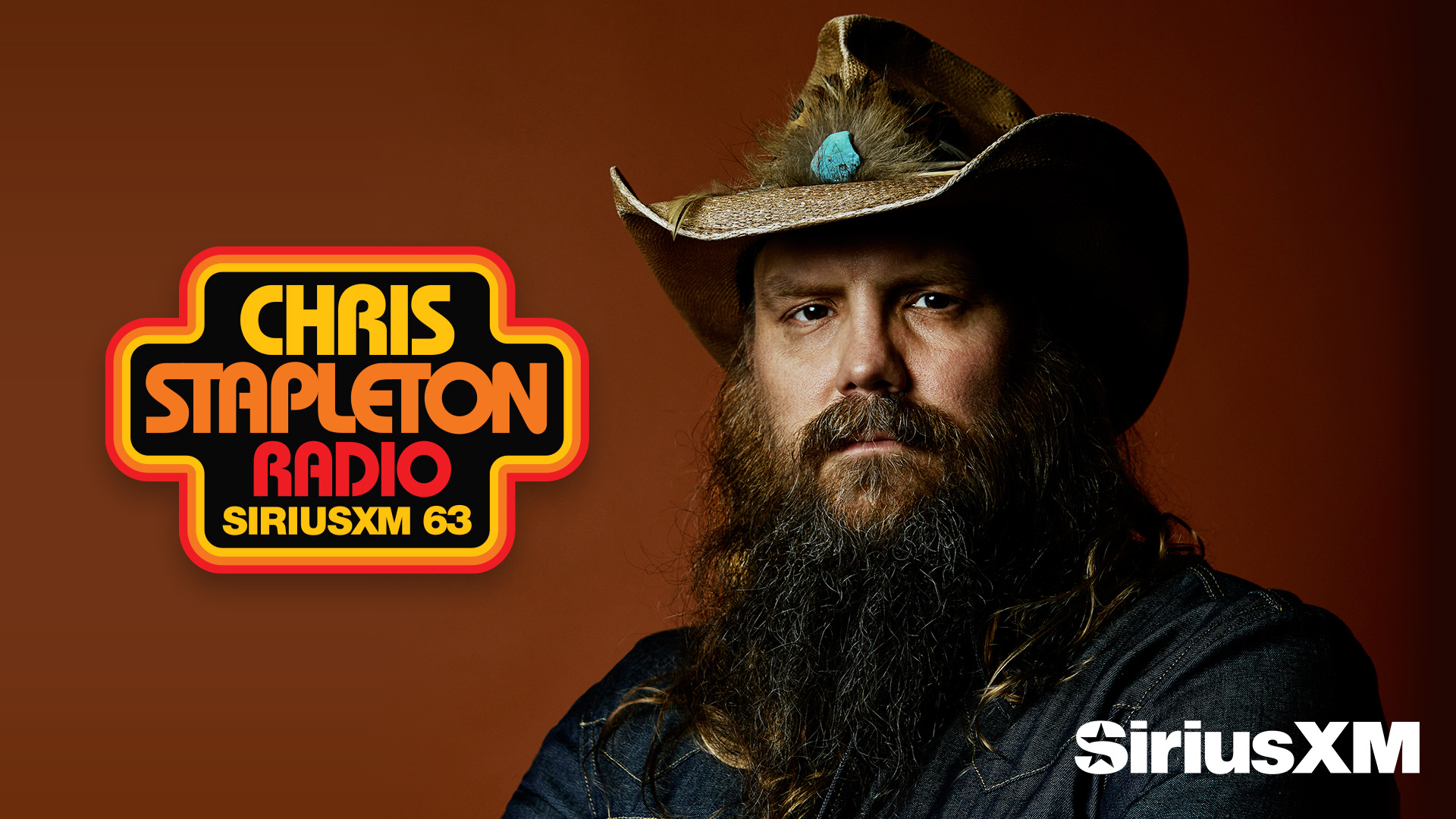Chris Stapleton Racist: Unpacking The Controversy
In the vast and often tumultuous landscape of public opinion, accusations can spread like wildfire, sometimes based on misunderstanding, sometimes on outright misinformation. One such surprising and deeply inaccurate claim that occasionally surfaces is the notion that country music superstar Chris Stapleton is racist. For those who have followed his career, listened to his powerful lyrics, or paid attention to his public statements, this accusation feels not just wrong, but fundamentally at odds with everything he represents. This article aims to comprehensively unpack this controversy, presenting clear evidence from his own words and actions to demonstrate why the label "Chris Stapleton racist" is not only false but actively contradicts his well-documented commitment to social justice and equality.
Chris Stapleton, a Grammy-winning artist known for his soulful voice and poignant songwriting, has consistently used his platform to advocate for empathy, understanding, and a more just society. His journey from a prolific songwriter for other artists to a solo phenomenon has been marked by authenticity and a willingness to address complex issues. Yet, in an era where social media can amplify both truth and falsehoods with equal measure, even figures like Stapleton can find themselves at the center of unfounded speculation. Let's delve into the facts to set the record straight.
Table of Contents
- Who is Chris Stapleton? A Brief Biography
- The "Chris Stapleton Racist" Query: Addressing the Misconception
- A Broad Awakening: Stapleton's Stance on Racial Justice
- Backlash and Unwavering Conviction
- Music as a Platform: Addressing Systemic Issues
- Beyond BLM: Stapleton's Broader Progressive Views
- The True Narrative: Why Chris Stapleton is Not Racist
- Conclusion: Empathy, Understanding, and the Path Forward
Who is Chris Stapleton? A Brief Biography
Before diving into the specifics of the "Chris Stapleton racist" claim, it's essential to understand the man himself. Chris Stapleton is an American singer-songwriter, guitarist, and record producer. Born in Lexington, Kentucky, his deep, gravelly voice and blend of country, blues, and rock have made him one of the most respected and commercially successful artists in modern country music. He's known for his authenticity, his powerful live performances, and his ability to craft songs that resonate deeply with listeners.
Early Life and Career Beginnings
Christopher Alvin Stapleton was born on April 15, 1978, in Lexington, Kentucky. His father was a coal miner, and his mother worked at the local health department. Growing up in the small town of Staffordsville, Kentucky, Stapleton was exposed to various musical influences, from country and bluegrass to rock and R&B. He attended Vanderbilt University, where he studied engineering, but eventually dropped out to pursue his passion for music. In 2001, he moved to Nashville, Tennessee, the heart of country music, to begin his career as a songwriter.
For over a decade, Stapleton was a prolific and highly sought-after songwriter, penning more than 170 songs for artists such as Adele, Luke Bryan, Kenny Chesney, George Strait, and Tim McGraw. His songwriting credits include six number-one hits. He also fronted two successful bands: The SteelDrivers, a bluegrass band, and The Jompson Brothers, a Southern rock band. While his songwriting career was thriving, it wasn't until 2015 that he truly broke through as a solo artist, forever changing the trajectory of his career.
Rise to Stardom
Stapleton's debut solo album, "Traveller," released in 2015, was a critical and commercial phenomenon. Its raw, authentic sound and Stapleton's powerhouse vocals captivated audiences. The album received widespread acclaim and earned him three Grammy Awards, including Album of the Year, Best Country Album, and Best Country Solo Performance for the title track. His performance with Justin Timberlake at the 2015 Country Music Association Awards was a pivotal moment, introducing him to an even broader audience and solidifying his status as a major force in music.
Since "Traveller," Stapleton has continued to release highly successful albums, including "From A Room: Volume 1" (2017), "From A Room: Volume 2" (2017), and "Starting Over" (2020). He has won numerous awards, including multiple Grammys, CMA Awards, and ACM Awards, cementing his legacy as one of country music's most respected and influential artists. Beyond his musical prowess, Stapleton has also become known for his thoughtful and often profound commentary on social issues, which brings us to the core of the "Chris Stapleton racist" discussion.
Here's a quick overview of Chris Stapleton's personal data:
| Attribute | Detail |
|---|---|
| Full Name | Christopher Alvin Stapleton |
| Date of Birth | April 15, 1978 |
| Place of Birth | Lexington, Kentucky, U.S. |
| Occupation | Singer-songwriter, Guitarist, Record Producer |
| Spouse | Morgane Stapleton |
| Children | 5 |
| Genre | Country, Southern Rock, Blues, Bluegrass |
| Notable Albums | Traveller, From A Room: Volume 1, Starting Over |
| Awards | Multiple Grammy Awards, CMA Awards, ACM Awards |
The "Chris Stapleton Racist" Query: Addressing the Misconception
The very idea that Chris Stapleton is racist seems to stem from a fundamental misunderstanding or a deliberate misrepresentation of his public statements, particularly those made in 2020. During a period of intense social reckoning in the United States following the death of George Floyd, many public figures were asked to share their views on racial justice, systemic racism, and the Black Lives Matter movement. Chris Stapleton was among them, and his responses were unequivocal.
For those who don't closely follow social media or the news, it might appear confusing how such a claim could arise. However, the "Data Kalimat" provided clearly indicates that Stapleton did indeed receive "some backlash this week for supporting the Black Lives Matter movement." This is a crucial piece of information. The accusation of being "Chris Stapleton racist" likely comes from a segment of his fanbase, or external observers, who disagreed with his stance on racial justice, rather than from any actual racist remarks or actions on his part. In fact, the backlash he faced was *because* he supported the movement, not because he opposed it.
This dynamic is not unique to Stapleton. Other prominent country artists like Jason Isbell and Sturgill Simpson also faced similar reactions for voicing their support for racial justice initiatives. In the polarized climate of 2020, taking a clear stance on issues like Black Lives Matter often led to criticism from those who held opposing views, regardless of the artist's true intentions or character. Therefore, the "Chris Stapleton racist" narrative is less about Stapleton's actual beliefs and more about the reactions of those who misinterpreted or disagreed with his progressive views.
A Broad Awakening: Stapleton's Stance on Racial Justice
Chris Stapleton's position on racial justice is not ambiguous; it is remarkably clear and consistent. His statements, particularly in a pivotal 2020 interview with CBS This Morning, reveal a profound personal reflection and a deep commitment to addressing systemic issues. This interview became the cornerstone of his public declaration on these sensitive topics.
The George Floyd Aftermath and Personal Reflection
In the aftermath of George Floyd's killing at the hands of police, the United States experienced widespread protests against systemic racism and police brutality. These events prompted many Americans, including Chris Stapleton, to re-evaluate their understanding of the country and its history. In his 2020 interview with CBS This Morning, Chris discussed how his view of the U.S. had changed as a result of the reckoning over racial justice that followed George Floyd's death. He admitted that his perception of the United States had undergone a significant shift.
Stapleton articulated this transformation powerfully, stating that the recent protests against systemic racism and police brutality had made him realize that the America he thought he was living in is a "myth." This was a profound admission from a country star, a genre often associated with traditional, patriotic ideals. He explained that the aftermath of George Floyd's killing had given him a "broad awakening" about what was truly happening in the country. This wasn't a casual observation but a deeply personal realization that challenged his preconceived notions and forced him to confront uncomfortable truths about racial inequality in America. He believes Americans should be working hard to permanently stamp out racism.
Public Declaration: "Black Lives Matter"
Beyond his personal awakening, Chris Stapleton made his stance on the Black Lives Matter movement unequivocally clear. In that same CBS This Morning interview, the singer told host Anthony Mason that he "absolutely believes that Black Lives Matter." This was not a hesitant endorsement but a firm, unambiguous declaration of support for the movement and its core principle.
The conversation between Stapleton and Mason touched specifically on the Black Lives Matter movement and the protests and marches that had been taking place throughout the country. Stapleton's willingness to engage with these topics directly and publicly affirm his support for Black Lives Matter was a significant moment, especially within the country music genre, which has historically been perceived as less outspoken on such progressive social issues. His direct answer to the question, "Did Chris Stapleton endorse Black Lives Matter?" is a resounding yes. He later doubled down on his pleas for empathy in a December interview with the Los Angeles Times, even acknowledging that harsh reactions to his opinion might sting, yet his conviction remained unwavering.
Backlash and Unwavering Conviction
As mentioned earlier, Chris Stapleton's clear and public support for the Black Lives Matter movement, while lauded by many, was not universally welcomed. The "Data Kalimat" explicitly states, "But when Anthony asked Chris for his thoughts on the Black Lives Matter movement, many 'fans' couldn’t wait to throw their Stapleton records in the garbage." This reaction highlights the polarized nature of the discussion around racial justice in America and the challenges artists face when taking a stand on controversial issues.
The backlash he received underscores the very reason why the "Chris Stapleton racist" narrative might have emerged. It wasn't because he said or did anything racist; it was because his progressive stance on racial equality alienated a segment of his audience who perhaps expected a different viewpoint or preferred their artists to remain silent on political matters. This phenomenon is not new, but it gained significant traction during the social unrest of 2020. Artists like Jason Isbell and Sturgill Simpson, who also voiced support for Black Lives Matter, experienced similar pushback from some fans.
Despite the negative reactions, Stapleton did not retract his statements or soften his stance. Instead, as noted, he "doubled down on his pleas for empathy" in subsequent interviews. This unwavering conviction in the face of criticism speaks volumes about his sincerity and the depth of his belief in the principles of racial justice and equality. His actions demonstrate that his support for Black Lives Matter was not a performative gesture but a deeply held conviction rooted in his "broad awakening" to the realities of systemic racism.
Music as a Platform: Addressing Systemic Issues
Chris Stapleton's commitment to social justice extends beyond interviews and public statements; it is deeply embedded in his artistic output. Known for addressing serious social issues like systemic racism and gun violence through his music, Stapleton previously voiced his support for Black Lives Matter, highlighting his dedication not just through words, but through his art.
While his songs may not always be overtly political anthems, many of his lyrics address issues of poverty, inequality, and racism in nuanced and powerful ways. His storytelling often focuses on the struggles of everyday people, the challenges they face, and the universal human experience of pain, resilience, and hope. By giving voice to these narratives, he implicitly shines a light on the systemic issues that contribute to these struggles, including racial disparities.
For instance, songs that touch on themes of hardship, injustice, or the search for dignity can resonate deeply with listeners who have experienced discrimination or marginalization. While not explicitly about race, the emotional weight and empathy in his music create a space for understanding and reflection on broader societal inequities. His commitment to social justice is evident in both his music and his activism, subtly yet powerfully conveying messages of unity and fairness.
Beyond BLM: Stapleton's Broader Progressive Views
It's important to understand that Chris Stapleton's support for racial justice is part of a broader pattern of progressive political views. While he doesn't often engage in partisan politics, his stance on various social issues aligns with a more inclusive and equitable vision for society. His political views are generally progressive, and he has spoken out against racism, sexism, and homophobia.
This comprehensive approach to social justice further debunks the "Chris Stapleton racist" claim. A person who actively speaks out against multiple forms of discrimination – including sexism and homophobia – is highly unlikely to harbor racist sentiments. His consistent advocacy for marginalized groups demonstrates a fundamental belief in the equal worth and dignity of all individuals, regardless of their background, gender, or sexual orientation.
Furthermore, it's worth noting that while he holds these progressive views, he is also described as a "proud American and a strong supporter of the military." This aspect of his identity is crucial because it illustrates that his critique of systemic issues in the U.S. comes from a place of love for his country and a desire to see it live up to its ideals, rather than from a place of animosity. He is not anti-American; he is simply advocating for a better America, one that truly embodies liberty and justice for all. This nuanced patriotism allows him to be both critical of societal flaws and deeply devoted to the nation's foundational principles.
The True Narrative: Why Chris Stapleton is Not Racist
The evidence overwhelmingly points to the fact that the claim "Chris Stapleton racist" is entirely unfounded and contrary to his documented words and actions. Let's summarize the key reasons why this accusation is false:
- Explicit Support for Black Lives Matter: Stapleton clearly stated in a CBS This Morning interview that he "absolutely believes that Black Lives Matter." This is a direct endorsement of the movement advocating for racial justice and an explicit rejection of the idea that Black lives are not valued.
- Personal "Broad Awakening": Following George Floyd's death, Stapleton admitted his view of the U.S. had changed, realizing the "America he thought he was living in is a 'myth'" due to systemic racism and police brutality. This shows a deep, empathetic understanding of racial injustice.
- Commitment to Eradicating Racism: He believes Americans should be "working hard to permanently stamp out racism." This is an active call to action against racism, not an endorsement of it.
- Backlash Received for His Stance: The fact that he received "backlash... for supporting the Black Lives Matter movement" directly contradicts the idea that he is racist. People reacted negatively precisely because he took a progressive stance, not because he expressed racist views.
- Music Addressing Social Issues: His lyrics and activism consistently address issues of poverty, inequality, and racism, using his platform to promote understanding and empathy.
- Broader Progressive Views: Beyond racial justice, he has spoken out against sexism and homophobia, indicating a comprehensive commitment to equality for all marginalized groups.
The narrative of "Chris Stapleton racist" appears to be a misinterpretation or deliberate distortion of events, likely fueled by disagreement with his progressive social views rather than any actual racist behavior or statements. His career, his music, and his public persona are all rooted in authenticity, empathy, and a profound sense of justice. He has consistently used his voice to advocate for those who are marginalized and to challenge societal norms that perpetuate inequality. To label him as racist is not only inaccurate but also dismisses his genuine efforts to contribute to a more just and equitable world.
Conclusion: Empathy, Understanding, and the Path Forward
In conclusion, the assertion that Chris Stapleton is racist is unequivocally false. His public statements, particularly his powerful and candid interview with CBS This Morning in 2020, clearly demonstrate his profound commitment to racial justice and his unwavering support for the Black Lives Matter movement. He experienced a "broad awakening" regarding the realities of systemic racism in America, leading him to challenge his own perceptions and advocate for a more equitable society. The backlash he received for these views only further underscores the fact that his stance is anti-racist, not the other way around.
Chris Stapleton embodies an artist who is not afraid to use his platform for good, even when it means facing criticism from some segments of his audience. His music, rich with themes of struggle, resilience, and the human condition, complements his outspoken advocacy against racism, sexism, and homophobia. He remains a proud American who believes in the nation's potential to live up to its highest ideals, even as he acknowledges its historical and ongoing challenges.
For those seeking to understand Chris Stapleton's true character and beliefs, his actions and words speak far louder than unfounded accusations. His message is one of empathy, understanding, and the urgent need to "permanently stamp out racism." We encourage readers to listen to his music, reflect on his statements, and engage in thoughtful dialogue about the complex issues he bravely addresses. If you found this article insightful, please consider sharing it to help clarify the truth about Chris Stapleton's stance on racial justice, and explore other articles on our site that delve into similar topics of social impact and celebrity advocacy.

CHRIS STAPLETON RETURNS WITH STARTING OVER - UMG Nashville

Chris Stapleton Hosts & Curates Exclusive SiriusXM Channel

Sky Sports NFL on Twitter: "Chris Stapleton with the USA national